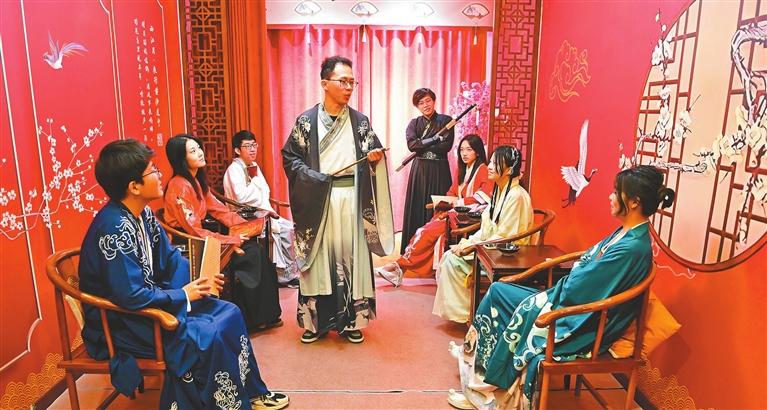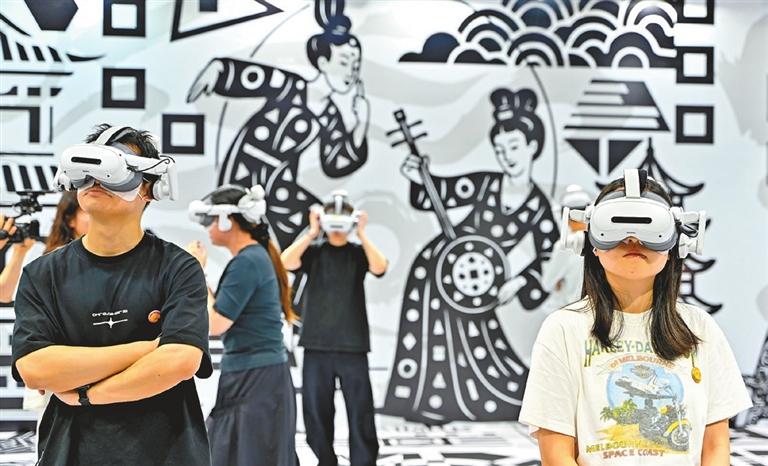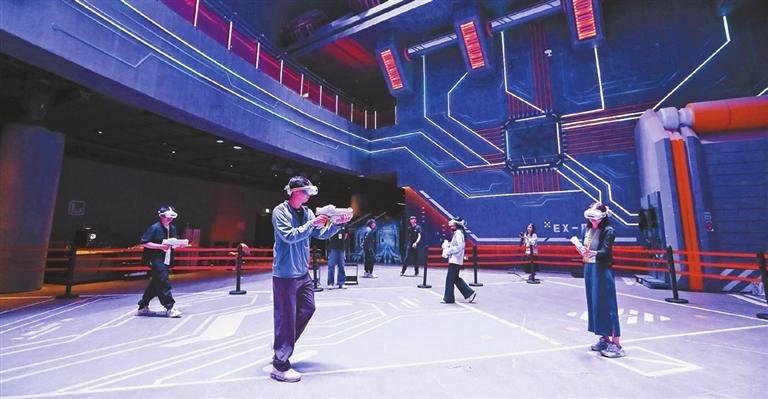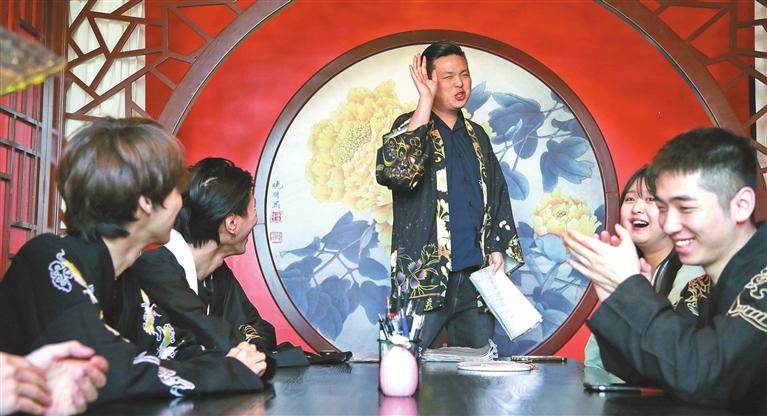




THE neon-lit karaoke parlors that dot Chinese cities were once a top choice among the country’s exuberant youth for birthday parties, dates, celebrations, or simply relaxation. Singing in an elaborate private karaoke room, reading lyrics from a high-definition television, and hearing your voice and sentiment vented through speakers was a highly sought-after, youthful experience one-to-two decades ago. Today, it’s a different story. In recent years, the appeal of karaoke has seemingly waned. Some discussions of this change have resonated deeply with many on social media platforms. A hashtag on microblogging platform Weibo — “Why don’t young people go to KTV anymore?” — was posted last week and has almost hit 10 million reads. Under this and similar tags are myriad comments, from complaints about the tedium of sitting in a box for long hours to expressions of preference for other entertainment forms, indicating the ebbing popularity of what was once the height of entertainment among China’s youth. The market tells the same story. Meituan, a leading life services provider in China, reported a significant decline in numbers of both KTV outlets and young KTV-goers since 2023. It cannot be denied that the country’s three-year pandemic response took its toll on some indoor venues. Karaoke venues have been active in adapting to these changes, revamping their appearances and shifting business strategies to lure more middle-aged and elderly customers. The karaoke phenomenon reflects deeper transformations in how Chinese people socialize and amuse themselves — a sign of the times. Outdated? Karaoke was introduced to China as early as the 1980s and later evolved into Karaoke Television (KTV), featuring private boxes and professional vocal devices. KTV gained sweeping popularity among Chinese people from the 1990s. During a time with few entertainment options and no a colorful nightlife, singing solo or with friends became the top leisure activity choice. Today, Chinese youth have easy access to more affordable and attractive alternatives. Don’t like singing in front of others? Consider downloading a smartphone karaoke app instead. Still obsessed with singing? Go to a live performance. Beyond the music arena, young people are voting with their wallets for fundamentally different social experiences. Though private karaoke rooms were once a sanctuary for social bonding, more immersive and interactive activities like escape rooms, board games, and murder mystery games have risen to dominance. “I would rather split 199 yuan (US$27.67) for an all-night gaming session with my friends than pay 98 yuan for a monotonous KTV package,” one comment on Weibo reads. Entertainment industry analyst Chen Yu observed a mismatch between KTV entertainment and youth’s social needs. More and more young people are feeling the unequal levels of involvement at KTV, Chen said. Some sing well and others love to drink, but the rest are merely paid audience members. Turning their backs on these social engagement rules, today’s young people are more inclined toward entertainment activities that involve continuous, individualized, and participatory interaction. For example, scripted murder games can provide sustained engagement for as long as three hours. “There are more kinds of fun and challenges when playing script games, bringing more exchanges of thoughts, so we learn more about each other. That’s the real point of socializing for me,” said Kan Lingxiao, a devoted player of such games who studies at the Communication University of China. To cater to these tastes, a franchise KTV brand in Beijing has upgraded its devices with augmented reality (AR) technology, creating virtual stages on which customers can sing alongside their favorite musicians. And a KTV club in Shanghai has managed to attract three times more bookings by integrating singing with script games. Experts suggest that young people are eager to show off their personalities, and activities focusing more on personal sentiment can satisfy their social needs. The show goes on Adapting to diverse preferences, the story of karaoke does not end as tastes move on. It goes on to include an even broader clientele, reflecting China’s evolving social lifestyles. In Beijing, energetic retirees can often be found occupying daytime slots at karaoke venues, transforming what were once nocturnal youth spaces into vibrant senior community centers for singing, chatting, and feasting on delicacies. Huang, a retiree who enjoys singing, traveled on a bus for about three hours to attend a recent gathering with her old colleagues at a KTV parlor. The oldest member of her group was 76 years old. The moment they settled in their KTV room, Huang was eager to sing her favorite songs, which range from the classic hits of Dao Lang, a pop singer who rose to stardom roughly two decades ago, to those of pop singer Jay Chou, who is an icon to many born after 1990. For many seniors like Huang, singing represents nostalgia to some extent, having witnessed the rise and subsequent boom of KTV. After retirement, it becomes more of a key social lifeline. Singing, dancing, traveling — how one amuses oneself grows with age. An industrial report from Meituan shows that in 2023, the number of KTV-goers above the age of 55 increased 37% year on year. China had more than 300 million people aged 60 or above by the end of 2024. Covered by the world’s largest medical security network and with stable pensions, retirees have expanding social needs and are willing to spend money on them. It is projected that by 2030, the education, culture, and entertainment market for seniors will reach 11 trillion yuan. Tapping into this potential, many KTV bars are attempting to entice more senior customers. “We launched discount and promotional activities to attract more seniors — not just for profits, but more for wider popularity,” a customer service representative of a KTV salon in the southern Chinese city of Guangzhou said. He revealed that from 11 a.m. to 4 p.m. each day, nearly 80% of the venue’s patrons are retired people, who can sing for hours and enjoy buffets for an average of about 40 yuan per person. “We meet every week to sing for about half the day. With a VIP card, it costs me 66 yuan each time. It’s very cost-effective,” according to one member of a choir of retirees in Nanjing, East China’s Jiangsu Province. Karaoke venues also consider the specific needs of senior customers, such as expanded lists of songs they are familiar with and assistance with technology. “KTV will not fade out as an entertainment form,” another Weibo comment reads. “Just as vintage record players can always be found by collectors, KTV will become a symbol of a nostalgic culture.” (Xinhua) | 
